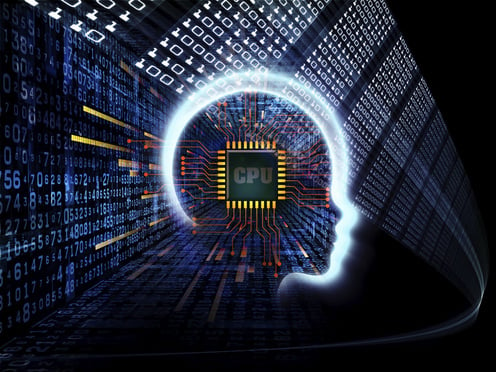“Simply put, artificial intelligence is a sub-field of computer science. Its goal is to enable the development of computers that are able to do things normally done by people – in particular, things associated with people acting intelligently.”
In fact, Dr. McCarthy’s basic introduction (revised in 2007)—what is artificial intelligence—is still available online at the time of this writing. It is still a useful read for those seeking an entry-level understanding.
The point is, AI has been around for a long time. What’s new is that it has matured and its capabilities have accelerated on heels of greater computing power at affordable costs. More importantly, the volume of data and data sets available have grown exponentially. This is important to understand because, this very volume of data helps drive more effective AI decisions, and conversely allows us to use machine learning to analyze or filter through the immense noise that “big data” represents to a normal person.
Yet the question remains: Will AI replace lawyers? The answer isn’t so black and white, as Ryan McClead, a familiar face in ILTA spheres, noted in 2015 piece on 3 Geeks and a Law Blog titled Stop the AI madness!
“It’s just as wrong to believe that any of these jobs will be specifically replaced by computers as it is to believe that they will never be replaced by computers,” he wrote. “Is there no need for car mechanics, now that cars are all computerized?”
What is a better answer? As Mr. McClead posits:
“AI will enhance, change, and restructure what it means to work in a law firm. It will change the nature of the work that lawyers and staff do. It may reduce the workload so that fewer individuals are needed, or it may make it possible for more individuals to do that much more work, but it is quite unlikely that people working in law firms in 5 or 10 years will be doing exactly what they do now.”
His point is well taken because not only does technology change the way we work, but also changes the type of work we do. With many firms already investigating and adopting a range of AI tools, they are finding they can think differently about how to leverage and focus on developing the special skills their associates have, lose less time doing grunt work, and explore how to better compete by pricing accordingly.
Conceivable Opportunities for AI in Legal Tech
We will certainly see technology change the way rote legal services are delivered. We have already seen this in document review, for example. Yet the vast majority of advancements in the near term will simply facilitate the daily workflow in a law firm.
Consider the following opportunities:
- Focus: A partner about to enter a client meeting verbally asks the computer to bring up the last few invoices. The verbal interface saves the attorney what would normally require several, rather distracting, navigational clicks. He or she is now focused on what needs to be done rather than searching for what needs to be done.
- Expenses: As a lawyer closes the door to an Uber ride that dropped him or her off at the client site, an AI application scans the attorney’s inbox for the receipt and automatically enters it as a line item expense.
- Calendaring: Near the end of an hour-long client meeting, the attorney and client agree to a follow-up meeting the next week. An AI application has been passively listening to the conversation—with legal consent—in the background and automatically reviews each party’s calendar and proposes a new meeting time that’s mutually beneficial.
- Intake: During new client intake, an AI application is listening in the background and automatically begins searching for potential conflicts. In the meantime, another algorithm continuously narrows down sources of legal research relevant to the legal matter at hand, as the intake form is completed or files are added to the case.
- Predictive analysis: An AI application combs through the massive data set in a law firm’s case management and practice management system—and compares that data to public sources such as newsfeeds and stock exchange data to make a prediction: In the next 12 months, this practice area, or this type of company, represents a growth opportunity for the firm; look for new laterals hires with this expertise.
Barriers to AI and Law Firms of the Future
If there are barriers to the advancements AI can bring to business, then they are not technological but societal. For example, it took a decade or so before society became comfortable making purchases online.
Another good example is driverless cars, which have made enormous strides over the last decade. The concept is very close to being ready for prime time and the benefits stand to be incredible.
Daily commuting could be faster as cars are efficiently redirected to minimize congestion by neural networks. The cost of insurance may drop or even be eliminated as AI reduces collisions, accidents and associated liabilities. Even the perceived need for vehicle ownership could be challenged. If you can summon a ride on demand at an affordable price, why purchase one?
All this could change, if and only if, society is willing to give up something it values: the ability to drive. Businesses including law firms will wrestle with similar sociological questions as the technology becomes more accessible.
There are, however, two things with regard to AI on which I remain fairly confident. First, Google will get even better at helping assist me in organizing my photo albums. Secondly, as the legal community accepts AI, the lawyer will find his or her abilities have been augmented, but not replaced.


 Artificial Intelligence.
Artificial Intelligence.
